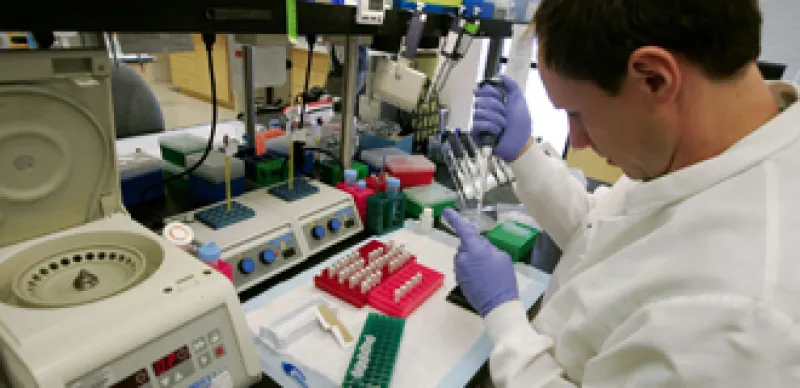
EDITOR'S NOTE: PHOTOS EMBARGOED UNTIL 00:01 MAY 11, 2010. Lab technician Jarrod Morgan tests DNA samples at Pathway Genomics Corp. in San Diego, California, U.S., on Monday, May 10, 2010. Pathway Genomics is preparing to sell gene-testing kits in Walgreens stores next week, a step likely to generate questions about how consumers may use and understand test results that many doctors have trouble interpreting. Photographer: Sandy Huffaker/Bloomberg *** Local Caption *** Jarrod Morgan
Sandy Huffaker/Bloomberg

